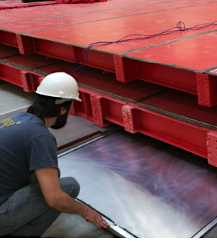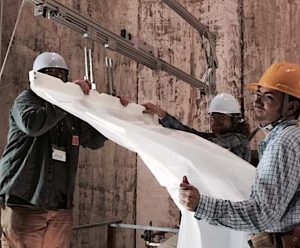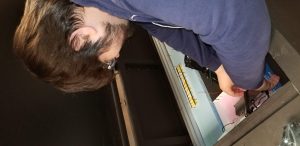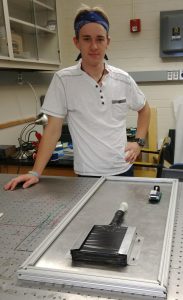The High Energy Physics and Particle Astrophysics (HEPPA) group, a CSU Program of Research and Scholarly Excellence (PRSE), has been awarded a $100,000 Strategic Funding Award by the CSU Office of the Vice President for Research. This award, which has a focus of providing opportunities for CSU students to work in a collaborative environment on the forefront of research, will support three initiatives by the group:
- The addition of new advanced instrumentation for the laboratories shared by several faculty, such as a device that can measure a single photon of light with a timing precision of a billionth of a second.
- An initiative to provide graduate training in advanced “machine learning” techniques for high energy physics including bringing experts in the field to campus, the purchase of a graphical processing unit based computer that dramatically increases the speed for identifying interactions of high energy elementary particles, and the development of a special course available to both undergraduate and graduate students.
- The design and production, involving students from the College of Natural Sciences and the College of Engineering, of several hundred precision solid state photon detectors for an experiment at the Fermi National Accelerator Laboratory that will search for the existence of a new kind elementary particle, the “sterile” neutrino, that could be ubiquitous in the universe yet have no direct interaction with normal matter.
Participating CSU faculty:
Prof. Bill Fairbank, Prof. John Harton, Asst. Prof. Mike Mooney, Prof. Walter Toki, Prof. Bob Wilson
 Grad student Chris Hilgenberg installing cosmic ray detectors at Fermi National Accelerator Laboratory in Batavia, Illinois.
Grad student Chris Hilgenberg installing cosmic ray detectors at Fermi National Accelerator Laboratory in Batavia, Illinois.
Undergraduate student Jack Steiner hodoscope support he built to do development for the proposed BDX-DRIFT experiment.
 Grad student Matt Hogan, recent PhD recipient Thomas Campbell and senior technician Jay Jablonski installing CSU -designed water-containment system for the T2K experiment in Tokai, Japan.
Grad student Matt Hogan, recent PhD recipient Thomas Campbell and senior technician Jay Jablonski installing CSU -designed water-containment system for the T2K experiment in Tokai, Japan.
 Grad student Tyler Boone working on the photon readout electronics for a scintillating plastic detector in the CSU HEP lab.
Grad student Tyler Boone working on the photon readout electronics for a scintillating plastic detector in the CSU HEP lab.

